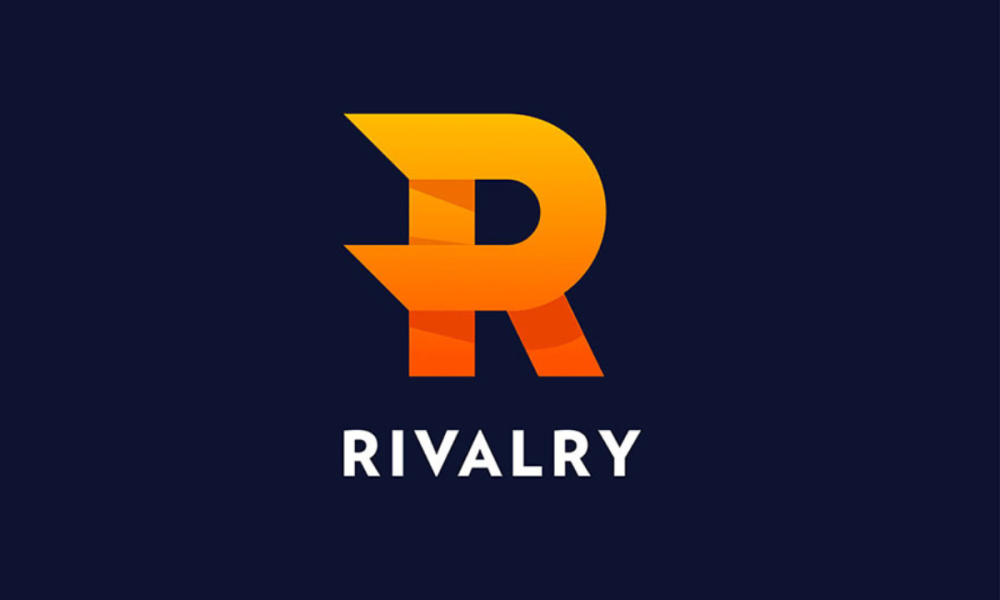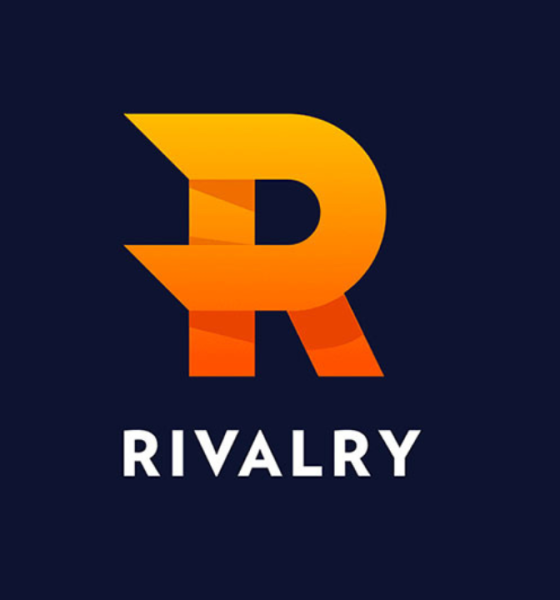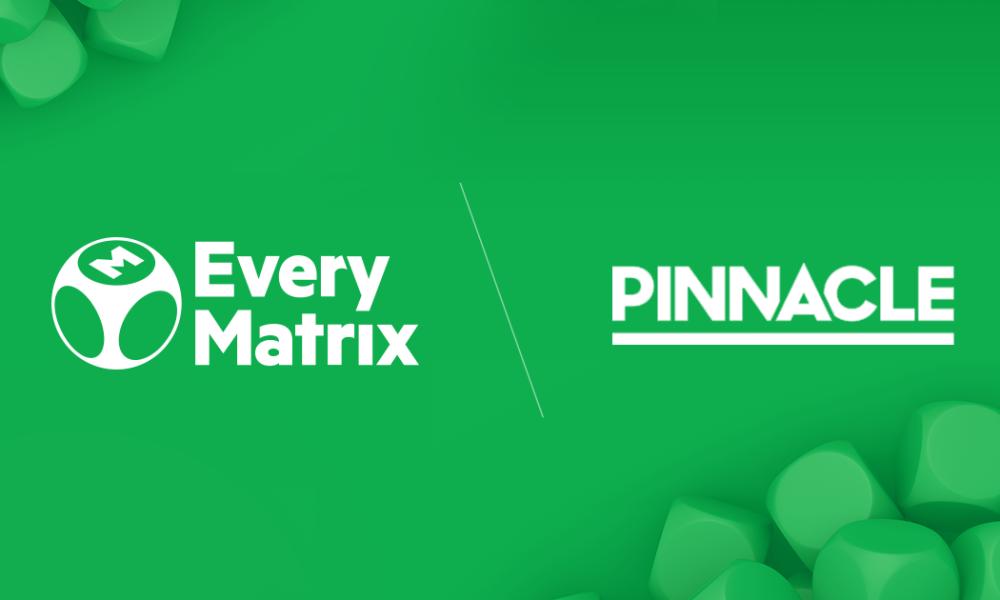

Canada
Rivalry Reports First Quarter 2024 Results, Expands Into Crypto Segment Through Rivalry Token
Rivalry Corp. (the “Company” or “Rivalry”) (TSXV: RVLY) (OTCQX: RVLCF) (FSE: 9VK), the leading sportsbook and iGaming operator for Gen Z, today announced financial results for the three-month period ended March 31, 2024. The Company also announced Rivalry Token, a native cryptocurrency token that will act as a nexus between Rivalry, Web3, and gamblers. All dollar figures are quoted in Canadian dollars.
“Our first quarter results saw a return to growth with sequential increases in betting handle, gross gaming revenue, and net revenue,” said Steven Salz, Co-Founder and CEO of Rivalry. “We are also very encouraged by the improvement to net revenue margin experienced in the quarter, hitting an all-time record, proving our strategy is delivering results, and representing a meaningful improvement as compared to the average levels experienced throughout 2023. Additionally, interest in our original casino content continues to build, unlocking B2B revenue opportunities that we are keen to detail more fully in the near future.”
“Today we also announced a decisive move to more deeply tap into the significant global crypto gambling market through Rivalry Token. This represents a meaningful strategic step for Rivalry, complementing our existing approach which focuses on a generation that grew up immersed in gaming and internet culture, and now extending that reach to the crypto community. The Venn diagram of Gen Z, gamblers, gamers, and crypto enthusiasts or crypto curious has an extremely high degree of overlap that we are uniquely positioned to access.”
“Alongside this announcement, we have also released an overhaul of our homepage, a more fulsome crypto wallet experience, and adjusted the onboarding experience for new users to materially reduce friction while maintaining compliance. Together, this represents a meaningful effort to access a higher value crypto gambling cohort, adding more depth and reach to Rivalry’s global network. This comes at an opportune time, as momentum in crypto gambling has been building amongst our target audience and they’ve been gravitating towards it. By expanding our product offering into this segment, it positions us to compete and win as we innovate product and gain access to this higher value customer cohort.”
First Quarter 2024 Highlights
Betting handle for Q1 2024 was $94.7 million, increasing by $9.6 million, or 11% as compared to Q4 2023.
Gross gaming revenue (“GGR”)2 was $7.7 million in Q1 2024, up $1.3 million, or 20% from $6.4 million in Q4 2023.
Net revenue3 was $4.5 million in Q1 2024, increasing by $1.5 million, or 51% from $3.0 million in Q4 2023. As a percentage of GGR, the Q1 2024 net revenue margin of 58.5% was the highest in Company history, and compares to 45.4% in FY 2023. As a percentage of betting handle, the net revenue margin of 4.7% was the highest of the past five quarters. The improvements reflect ongoing initiatives to increase margins through innovation and adjustments to the product offering.
The Casino segment continues to be a strong contributor, generating 59% of betting handle and 19% of GGR in the quarter. Segment results reflect the ongoing expansion of Rivalry’s casino product line, including the original game Cash & Dash released in the second half of 2023.
Net loss was $5.2 million in Q1 2024, the Company’s narrowest net loss of the last four quarters.
The Company had $9.4 million of cash as at March 31, 2024.4
Rivalry released a basketball same-game-parlay product coinciding with the 2024 NBA playoffs, building on the Company’s growing traditional sports vertical. This has supported both acquisition efforts and net revenue margin enhancement.
The Company also released pre-made-parlays, driving meaningful customer interest and improving sportsbook hold.
Rivalry released shareable bet slips during the quarter, introducing a social feature to increase user acquisition and community engagement.
Rivalry continues to explore interest in licensing its first-party casino games, accelerating the advancement of its B2B vertical.
The Company is updating its profitability guidance from the first half of 2024 to by the end of 2024.
Rivalry Token
Rivalry has today revealed Rivalry Token, a native crypto token on the blockchain to add increased functionality, economics, and user experiences across the Company’s product suite, continuing Rivalry’s track record of innovation in online betting. The launch of Rivalry Token, anticipated to arrive in H2 2024, represents one of several forthcoming initiatives to position Rivalry in the crypto gambling market and better serve its core audience of under-30 bettors.
“Online gambling is the latest web-based consumer category being increasingly disrupted by blockchain technologies with greater speed, access, and functionality than their legacy counterparts,” Salz added. “Tech-savvy bettors are leading a behavioral shift towards more experiential and crypto-enabled gambling experiences that are taking wallet share from incumbents at an accelerated rate.”
“Rivalry is well-positioned to access the growth opportunity in crypto with a proven product set, a brand entrenched in internet culture, and a captive audience of digitally native users that are driving this economic renaissance. The launch of Rivalry Token, alongside a broader expansion into cryptocurrencies, strengthens our product-market fit among an under-30 audience and positions us competitively to capture a meaningful share of this fast-growing and highly valuable segment of the market.”
Rivalry Token will be a utility token integrated within Rivalry’s product suite – from sportsbook to casino and more – with built-in properties to enhance the customer experience from end-to-end. This introduces a dynamic relationship where every sports wager and casino spin, win or lose, is rewarded with a decentralized asset that delivers meaningful real money utility for the player. The Company expects its token will drive an increase in player engagement, loyalty, and advocacy by establishing more positive economic alignment between itself and users.
Rivalry has today launched a pre-farming campaign called PLAY-2-EARN, where users can begin accumulating interim token points through site activity and eventually social media which will be converted into Rivalry Tokens later this year.
Following the official launch, Rivalry Token will be available for players to use on Rivalry in all of the Company’s active markets excluding Ontario and Australia.
The Company will release more information about Rivalry Token throughout the coming months, including commercial partners, token economics, and more.
Investor Conference Call
Management will host a conference call at 10:00 a.m. EDT on Thursday, May 30, 2024 to discuss the Company’s first quarter 2024 financial results and its expansion into the cryptocurrency space.
AGLC
AGLC Announces New Board Chair

Alberta Gaming, Liquor and Cannabis (AGLC) has announced the appointment of Larry Spagnolo as the new Board Chair, effective August 15, 2025. This announcement follows the official Order in Council issued by the Alberta Government and marks a new chapter in AGLC’s ongoing commitment to support communities, encourage responsible choices and position Alberta as the best place to do business.
Larry brings a wealth of experience in technology and business leadership to the AGLC Board and will play an integral role in guiding AGLC’s strategic direction. He is currently serving as VP and GM of Emerson’s SaaS SCADA business and has held senior roles at Zedi and Telus, driving innovation, growth, and global success.
A strong advocate for education and community, Larry serves as Vice Chair of Athabasca University’s Board of Governors and has held board roles with NAIT and Polytechnics Canada. He was awarded the King Charles III Coronation Medal for his community contributions.
AGLC and the Board of Directors extend their heartfelt thanks to Len Rhodes for his leadership and dedication as Board Chair since August 2019. He decided not to seek a third term and will continue to serve in this role until August 14, 2025. Len led AGLC through some significant milestones, including reducing red tape by 51%, growth of the emerging cannabis industry and ensuring AGLC delivered a balanced approach to business development, social responsibility, and regulatory oversight.
The post AGLC Announces New Board Chair appeared first on Gaming and Gambling Industry in the Americas.
Bonus Guardian
Pinnacle Ontario live with CasinoEngine in North America debut

EveryMatrix has expanded its partnership with tier-1 operator Pinnacle powering its new casino in Ontario, Canada, using CasinoEngine platform technology – the first time its platform solution has gone live in North America.
The latest agreement builds on the two companies’ previous collaboration that saw EveryMatrix’s CasinoEngine productivity platform power the well-known brand’s global casino offering.
The new launch takes the relationship to North America, marking EveryMatrix’s debut CasinoEngine platform integration in that market.
BonusEngine, EveryMatrix’s cross-vertical bonusing tool will be integrated in the second phase of launch. This will equip Pinnacle Ontario with a host of bonus types as well as AI-powered bonus abuse solution Bonus Guardian.
BonusEngine is the first of multiple engagement tools from EveryMatrix’s EngageSuite that Pinnacle plans to integrate.
With this comprehensive toolkit at its disposal, and the opportunity to add even more casino products in the future, Pinnacle Ontario can tailor campaigns, segment audiences, and reward players more effectively, creating a world-class digital entertainment experience for its customers.
EveryMatrix has more than 300 global customers and holds North American licences in Ontario, New Jersey, Michigan, West Virginia, Connecticut and Pennsylvania.
Stian Enger Petersen, CEO, Casino, EveryMatrix, said: “This launch marks a key milestone for EveryMatrix as we bring our market-leading CasinoEngine platform to Canada for the first time.
“We’re delighted to expand our partnership with Pinnacle and support their ambitions in Ontario with a powerful combination of platform, content, and engagement tools that are proven to drive success.”
The post Pinnacle Ontario live with CasinoEngine in North America debut appeared first on Gaming and Gambling Industry in the Americas.
AGCO
Prime Skill Games Inc. Official Response to AGCO Press Release

As CEO of Prime Skill Games Inc., I feel compelled to address recent comments made by the Alcohol and Gaming Commission of Ontario regarding so-called unapproved gambling machines in convenience stores across the province.
Let me be perfectly clear
Our machines are not gambling devices. They are entirely skill-based, fully compliant with the law, and built on the fundamental idea that players are in control. The outcome of every session is determined solely by the player’s ability, not by random chance.
Prime Skill Games is proud to be the only true skill game operating in Ontario today.
We categorically reject any suggestion that our products fall under the definition of unregulated gambling. Such statements are inaccurate, misleading, and fail to recognize the critical distinction between games of skill and games of chance.
We stand firmly behind the legality of our machines and the integrity of our operations. We will demonstrate this through every available means, whether through legal documentation, expert analysis, or, if necessary, before the courts. We are prepared and unafraid to defend the truth.
To our players, partners, and business community, we want to reassure you that our mission has not changed. We are committed to offering a responsible, transparent, and innovative entertainment experience. We will not be intimidated by broad and baseless accusations, and we will continue to move forward with strength and clarity.
Sincerely
Matt Zamroźniak
Chief Executive Officer
Prime Skill Games Inc.
The post Prime Skill Games Inc. Official Response to AGCO Press Release appeared first on Gaming and Gambling Industry in the Americas.
-

 gaming3 years ago
gaming3 years agoODIN by 4Players: Immersive, state-of-the-art in-game audio launches into the next generation of gaming
-
EEG iGaming Directory8 years ago
iSoftBet continues to grow with new release Forest Mania
-
News7 years ago
Softbroke collaborates with Asia Live Tech for the expansion of the service line in the igaming market
-
News7 years ago
Super Bowl LIII: NFL Fans Can Bet on the #1 Sportsbook Review Site Betting-Super-Bowl.com, Providing Free Unbiased and Trusted News, Picks and Predictions
-
iGaming Industry8 years ago
Rick Meitzler appointed to the Indian Gaming Magazine Advisory Board for 2018
-
News6 years ago
REVEALED: Top eSports players set to earn $3.2 million in 2019
-
iGaming Industry8 years ago
French Senator raises Loot Boxes to France’s Gambling Regulator
-
News7 years ago
Exclusive Interview with Miklos Handa (Founder of the email marketing solutions, “MailMike.net”), speaker at Vienna International Gaming Expo 2018














